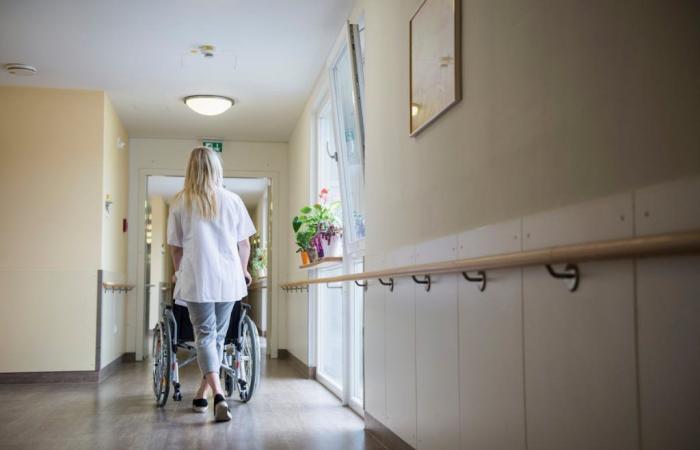The financial health of accommodation establishments for dependent elderly people (Ehpad) is deteriorating, according to the findings of a senatorial information report. Examined on Wednesday September 25, 2024 by the Social Affairs Commission, the document sounds the alarm about the financial situation of nursing homes which has deteriorated significantly over the past three years.
“Not only has the proportion of deficit nursing homes increased but the extent of the deficits has worsened, exposing many establishments to short-term cash flow difficulties”continue the authors of the report. To remedy this, they are proposing several solutions including the establishment of a second day of solidarity.
Nursing home finances in the red
The observation is clear. “Between 2020 and 2023, the share of deficit nursing homes increased from 27% to 66%”explain the senators. Worse still, in public establishments this quota rises to 84.4% for 800 million euros for the year 2023. Supported by three main sources of financing: the accommodation, care and dependency budgets, these last two sources seem default with declining income. The dependency and accommodation sections respectively recorded median result rates of – 6.30% and – 2.50% in 2022.
If the level of nursing home coffers seems to be decreasing due to a “conjunction of the inflationary context, salary increases and the insufficient evolution of accommodation rates”the situation could worsen in the decades to come with the increase in the number of residents. The authors of the report thus estimate that “compared to 2020, the increase would be around 16% by 2030, 36% by 2040 and 46% by 2050”.
And public aid seems far from sufficient to fill the gap in nursing homes. In 2023, the State released an envelope of 100 million euros for “medical-social establishments and services (ESMS) in difficulty”. A sum which was not sufficient for nursing homes although “80% of these credits [leur] have been allocated ».
A second day of solidarity?
Faced with the current impotence of public finances, senators have formulated several proposals to help these establishments. Among them, that of establishing a second day of solidarity allowing “generate 2.4 billion euros in additional revenue”or even 3.3 billion euros “by symmetrically increasing the contribution of retirees”calculate the rapporteurs. This one “could result in the elimination of a public holiday” and would therefore take the same form as the only day of solidarity existing at the moment.
For the record, this principle was created in 2004. It consists of an additional day of work. Unpaid, it must contribute to financing actions in favor of the autonomy of elderly or disabled people. It is most often set on Pentecost Monday, but it can also be another public holiday (with the exception of May 1st), an RTT or can be seven hours worked during the rest of the week. ‘year. This day of solidarity is obligatory for private and public sector employees.






